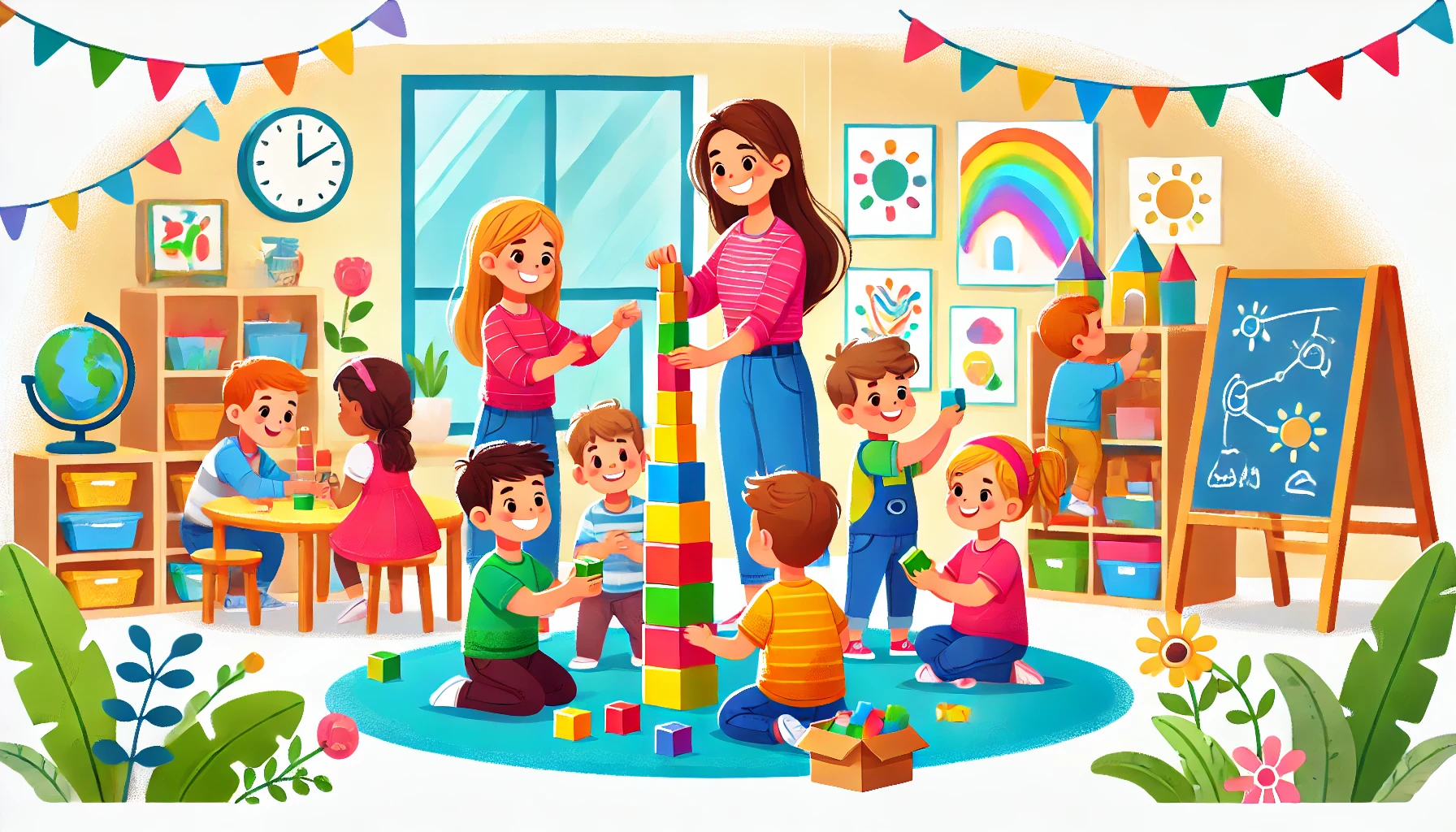Teamwork and collaboration are essential life skills that help young children build relationships, solve problems, and feel connected to others. When kids learn how to share ideas, listen to their peers, and work toward common goals, they become more empathetic, confident, and socially capable. Teaching teamwork through play, modeling, and guided experiences allows children to practice cooperation in fun and meaningful ways.
Why Teamwork Matters for Young Children
- Encourages cooperation and patience
- Builds communication and listening skills
- Fosters empathy and understanding
- Teaches problem-solving and compromise
- Prepares children for school and group life
1. Define Teamwork in Simple Language
Start by helping kids understand what teamwork means.
Activity Idea:
- Say: “Teamwork means working together to help each other.”
- Give examples like building a puzzle together, cleaning up as a group, or playing a team game.
- Ask: “What things do you like doing with others?”
What Kids Learn:
- That teamwork is about helping and sharing.
- How working together can be fun and productive.
- That cooperation builds stronger results than working alone.
2. Use Games That Require Cooperation
Play is a great way to introduce the concept of collaboration.
Activity Idea:
- Try partner games like passing a ball without dropping it, or relay races that require turn-taking.
- Play building games where children must create something together.
- Use board games to teach taking turns and group goals.
What Kids Learn:
- How to wait, listen, and take turns.
- The joy of sharing success.
- That helping each other leads to better outcomes.
3. Model Collaborative Behavior
Children learn through what they observe.
Activity Idea:
- Narrate teamwork moments in your day: “We’re working as a team to clean the kitchen—you dry, I’ll wash.”
- Show respectful conversation and compromise during disagreements.
- Invite your child into real team situations: “Let’s all fold laundry together!”
What Kids Learn:
- That teamwork happens in everyday life.
- How adults handle teamwork challenges.
- That family can be a team too.
4. Encourage Shared Projects
Working together on a task builds connection and skills.
Activity Idea:
- Create a group art piece, like a big collage or mural.
- Cook or bake together with assigned roles (one stirs, one pours).
- Build something from blocks or cardboard with a shared design plan.
What Kids Learn:
- That everyone has a role to play.
- How to communicate ideas respectfully.
- The pride of completing something as a team.
5. Teach Conflict Resolution Within a Team
Learning how to handle disagreement is part of being a good teammate.
Activity Idea:
- Role-play common conflicts like two kids wanting the same role in a game.
- Practice calm words: “Can we take turns?” or “What do you think we should do?”
- Teach that listening is just as important as speaking.
What Kids Learn:
- That disagreements are normal and manageable.
- How to express needs without hurting others.
- That teamwork means understanding different opinions.
6. Celebrate Teamwork Wins
Positive reinforcement makes teamwork something to look forward to.
Activity Idea:
- Create a “Team Player” chart and give stars or stickers when kids help others.
- Say: “You worked so well with your friend today—I loved how you shared ideas!”
- Highlight teamwork moments during storytime or dinner reflection.
What Kids Learn:
- That their cooperation is noticed and valued.
- The connection between effort and positive feedback.
- Motivation to continue working well with others.
7. Read Books About Working Together
Books help children understand abstract ideas like teamwork through story.
Activity Idea:
- Read stories like Swimmy by Leo Lionni or Stone Soup by Marcia Brown.
- Ask: “What did the characters do to help each other?”
- Act out parts of the story with toys or puppets.
What Kids Learn:
- That teamwork exists in many different situations.
- How characters solve problems as a group.
- That teamwork helps everyone succeed.
8. Reflect After Team Activities
Talking about what went well reinforces learning.
Activity Idea:
- After a playdate or group activity, ask: “What did you enjoy doing with your friends?”
- Say: “You worked as a team—what made that fun?”
- If a problem happened, reflect gently: “What could we do differently next time?”
What Kids Learn:
- How to think about their own behavior and choices.
- The benefits of collaboration and communication.
- That improvement comes with practice.
Final Thoughts
Teaching young children about teamwork and collaboration helps them build emotional intelligence, social skills, and confidence. With games, group projects, consistent modeling, and praise, you can show your child how working together isn’t just helpful—it’s also joyful, meaningful, and full of learning.
